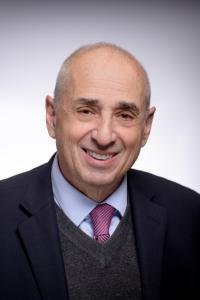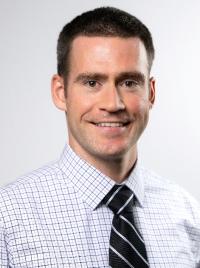Nutrition Plays Key Role in IBD Care
A Q&A with Registered Dietitian Sally Dorfzaun, MS, RD, CDN
Sally Dorfzaun, MS, RD, CDN joined Columbia’s Pediatric IBD Program in 2020 and is part of the team that cares for children and adolescents with inflammatory bowel disease (IBD). She works alongside Drs. Neal Leleiko, Joe Picoraro, Hillary Moore, Eunie Park, NP, Fiona Dawson, RN, and social worker Allison Geller. She has cared for both adults and children, and says that, while “adults already have a settled way of life, when working with kids you can really impact not only the child, but the eating patterns of the whole family.” Below, she talks about about IBD in children and how out team care for children with the condition.
What is your approach to caring for children with IBD?
During my first consultation with a family, I always encounter the same question: “Tell me what my child can't eat.” My focus is always positive, and I emphasize what they can eat and enjoy, and both parents and kids really appreciate that.
An important percentage of our patients are from Spanish-speaking families, and it can be difficult for parents from underserved communities and who don’t speak English to communicate. I was born and raised in Costa Rica and I am fully bilingual, and having someone on the team who not only speaks their language, but understands the culture is really beneficial. Families really open up, and it's easy to build rapport. In the Spanish population, every gathering—even if it's two people—revolves around food, and I help them navigate this world with nutrition recommendations and diet therapy.
What are the symptoms of IBD in children, and how is the condition treated?
Seeing a child with IBD left untreated can be heartbreaking. They often not only lose a significant amount of weight, but may have bloody diarrhea, abdominal and joint pain, and difficult skin conditions, and many end up very dehydrated. We see many extremely sick kids, who have lost 12, 15, 20 pounds in a very short window because of the severity of the disease.
It’s really important to optimize nutrition in children and adolescents, and our goal is to prevent kids from losing weight. Once they hit 18 or 19 years old they're not going to grow anymore, so they need to grow and develop in the years before that. Because every case is extremely different, our approach is highly individualized. The disease and treatment are very different in a three- or four-year-old than in a teenager, for example, or in males versus females.
What is behind the increase in the prevalence of IBD?
We are seeing more and more very early onset IBD cases in three-, four-, five-year-olds, and there are many theories about why this is happening, and why IBD rates are increasing overall. These include factors in the environment, highly processed foods, and certain food additives that can result in inflammation. Pair these with a high level of stress, and a genetic component, and you get these results. More and more research is also looking at the connection and relationship between the gut microbiota and the brain and IBD.
How did you get interested in the role of diet and nutrition in healthcare?
Half of my family are healthcare providers, and as I was growing up our conversations often were about medications and treatments. I wanted to help people, but not to rely only on medications, because many diseases can be controlled with food, or medication and food.
When I was in college, I did an internship with an outpatient dietitian in Costa Rica. Those few weeks really changed my life. It was like the “aha” moment, where I realized that this is what I want to do the rest of my life. I started out educating children and their families on celiac disease, but I felt I need more knowledge, especially on best ways to educate patients, so I got my masters at Teacher's College Columbia University.
What’s unique about the IBD care provided at Columbia?
Our IBD center really stands out because we have a team, and every member tries to address patients based on their own area of knowledge. And I believe that the collective knowledge is why we have great results in our patients. We are here to guide and support families through this journey.


